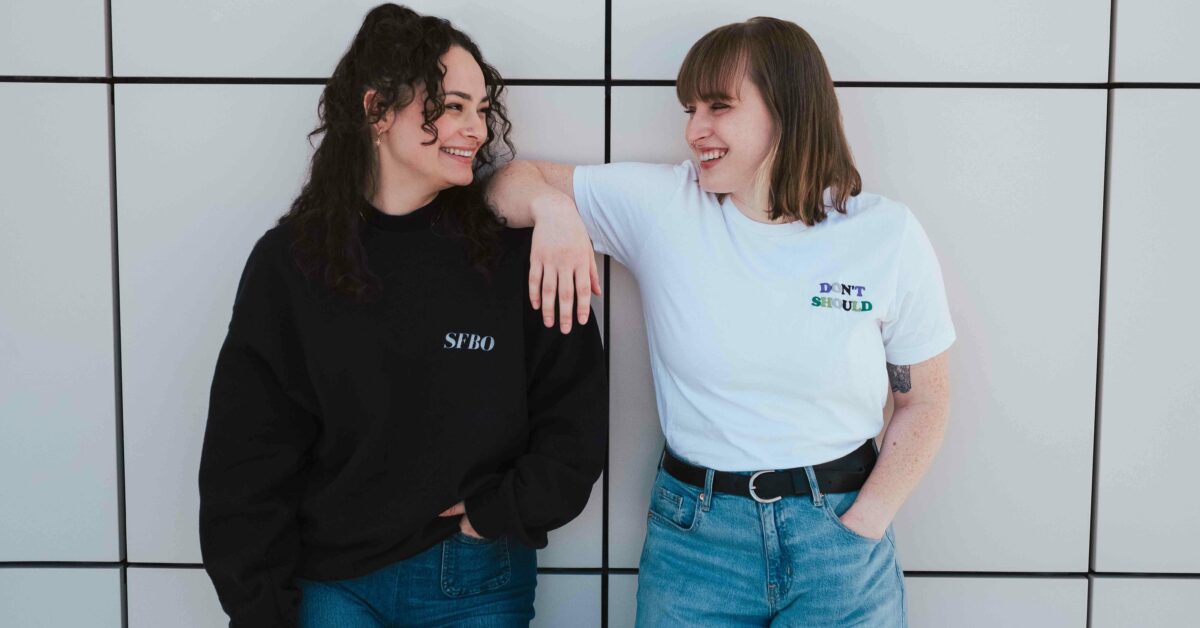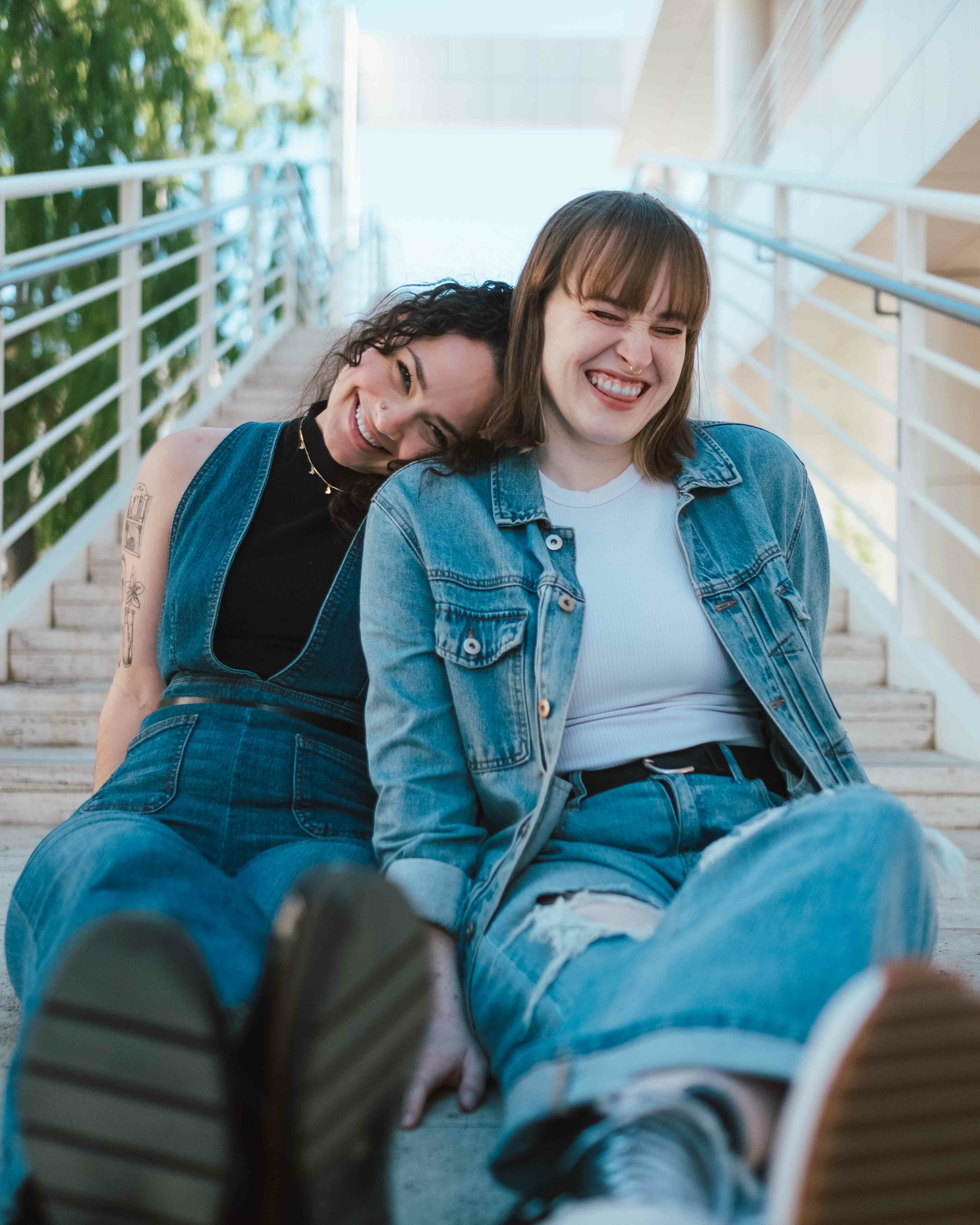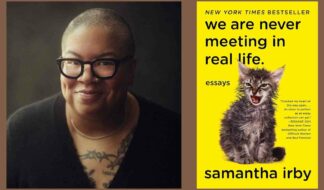Why Two Friends From Ann Arbor Created a Podcast About Asexuality
The show's two University of Michigan hosts have attracted millions of downloads


Options for compelling, thought-provoking media on asexuality are sparse. As an asexual person myself, I know it can be hard to know where to turn. But podcast hosts Sarah Costello and Kayla Kaszyca, both University of Michigan alums, have been changing all of that with their show “Sounds Fake But Okay.”
On the podcast, Costello and Kaszyca, who describe themselves respectively as an “aromantic asexual girl and a biromantic demisexual girl,” discuss “love, relationships, sexuality and pretty much anything else they just don’t understand.” For those new to the asexual spectrum (aspec) community and longtime members alike, the podcast’s thorough but laid back approach creates an entertaining and welcoming atmosphere as it digs into a wide range of topics: parenting, the kink community and passing as straight, all through an aspec lens.
Though Costello and Kaszyca are championing aspec awareness and attracting listeners from outside Michigan, that wasn’t exactly the plan when they started in 2017. They initially met in 2015 as randomly assigned roommates at U-M, and when Costello came out as aromantic and asexual, she couldn’t stop asking Kaszyca questions about things that didn’t make sense.
“I don’t understand making out… I don’t get it!” Costello jokingly whines during our recent interview, recalling her confusion. After several of these entertaining conversations, Kaszyca had an idea: Why not make a podcast? At first, it was an opportunity for two friends to discuss the merits of dick pics and how long sex should last (from an aspec lens, of course), but when AVEN (the Asexual Visibility and Education Network) took an interest and posted about them on Twitter, followed by a fundraiser they joined during Covid with other aspec activists, the podcast blew up (logging around 1.5 million downloads to date, according to Kaszyca).
Through in-depth, nuanced conversations, “Sounds Fake But Okay” challenges the notion that asexuality is anything but the punchline some people see it as. “The aspec experience can be really easy to stereotype,” Kaszyca says, “and so having that deeper representation that shows the humanity of it hopefully allows people to understand it more.” Costello points out that most online articles group asexuality into one of two categories: “These people are saying no to sex!” or “These people don’t experience sexual attraction but they still have sex!”

But through sharing their thoughts on, for example, being an asexual person at Pride and the meaningfulness of platonic relationships, they’re spotlighting the true complexities of the aspec community and working to change people’s perceptions. “[It] really makes a difference,” Costello notes, “in understanding and empathy and just being open to other people’s experiences.”
For Costello, who acknowledges that coming out as ace (a frequently used shorthand for "asexual") can be a very different experience than other LGBTQ+ identities, these conversations hit home. When she told her parents, they were supportive, but didn’t exactly know what it meant. “It involves a lot more explanation,” she says. “It can really kind of flip their world upside down.” Kaszyca adds, “Because asexuality or aromanticism are often — but not always — actions not taking place or attractions not being there, there’s no ‘evidence,’ which is not a fair thing to ask for, but [something] people often want. It can be hard to prove this is not just a phase.” The more they shed light on what it means to be asexual, the more aspec listeners can find much-needed validation.
“The aspec lens,” Kaszyca explains, “is really about questioning norms and questioning the things that we’ve been told to just assume are true.” Even simply being aware that not everyone in the world experiences attraction in the same way can be eye-opening and lead to so many other freeing realizations. “I think there’s so many possibilities to take pressure off and to teach people that they can customize their lives in a way.”
It’s something listeners who aren’t asexual can benefit from too. “People view romantic and sexual relationships as the most important thing that you have in your life,” Costello says. “It’s so important to me to explain to them that you don’t have to prioritize certain relationships just because they’re of a certain type.” There’s a huge benefit in building strong, platonic relationships, and Costello wishes more people outside the aspec community could learn to value those in the same way they do romantic partners. “A lot of people look at aspecs and they’re like, ‘Oh, you’re missing something. That must suck.’ And it’s like, ‘No, I don’t feel like I’m missing anything because we can all have fulfilling relationships in different ways. Different people need different things.”
Costello's favorite part about using their voice to amplify aspec awareness? The community it has built. “We honestly had nothing to do with [it],” they say, laughing. “It definitely grew beyond us. It’s just been really cool seeing aspec people find community and really see themselves in what we’re talking about.” Thanks to the “Sounds Fake But Okay” Discord server, aspecs have found each other and formed long-lasting friendships, meeting online for movie and game nights. They’re excited to bond over the latest podcast episode, or simply find comfort in being surrounded by other aspecs. And last year, Costello and Kaszyca expanded their reach even further, publishing the book “Sounds Fake But Okay: An Asexual and Aromantic Perspective on Love, Relationships, Sex, and Pretty Much Anything Else,” which they worked on for two years.
“A lot of people come to us saying, ‘I’ve never met another aspec person in real life.’” For those who still haven’t, it may be enough to just know that Costello and Kaszyca and their podcast exist.










